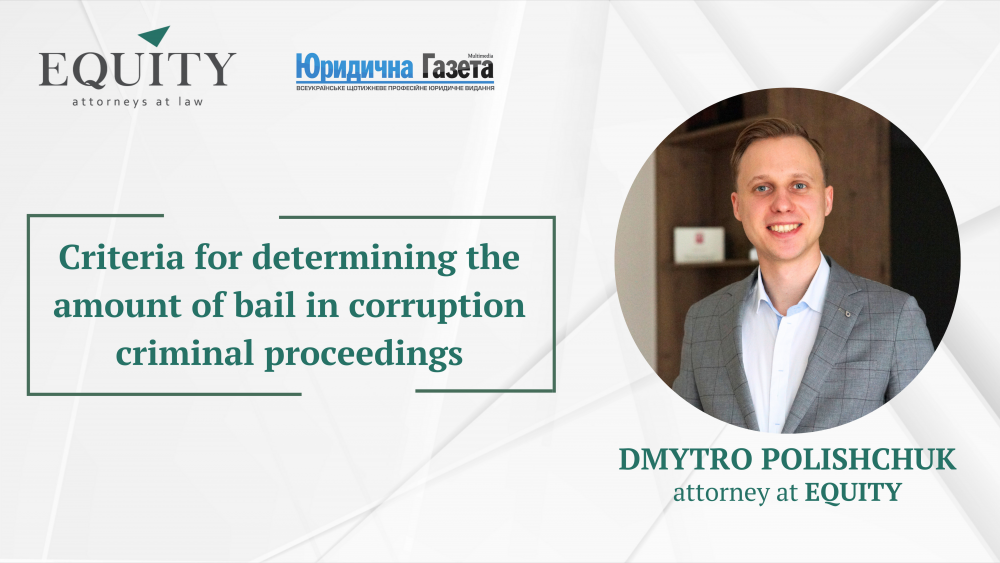Criteria for determining the amount of bail in corruption criminal proceedings

"Bail is not a punitive instrument, and its excessive amount can turn it into a non-alternative imprisonment," Dmytro Polishchuk, attorney at law at EQUITY, shares his opinion for the Yurydychna Gazeta.
In the article "Criteria for determining the amount of bail in corruption criminal proceedings", Dmytro revealed the concept of the essence of bail, the criteria for determining its amount and the NABU's vision of these processes.
He also spoke about the court practice of HACCU decisions, emphasizing that the HACCU practice of determining the amount of bail is not predictable.
A few key points:
- The most important thing about the essence of bail is that it is a measure of procedural coercion aimed at deterring violation of procedural obligations, devoid of any punitive overtones;
- In no case can bail be considered as a monetary penalty or liability;
- It should be emphasized that deviations from the established bail amounts may occur only in exceptional cases, which is regularly abused by the National Anti-Corruption Bureau of Ukraine (NABU) and the High Anti-Corruption Court (HACC);
- It is impossible to determine the approximate amount of bail that can be set by the court;
- To solve this problem, HACC judges should not just list the circumstances they take into account, but clearly indicate the causal link between the factual circumstances they have investigated and their impact on the amount of bail;
- A mere reference to the criteria set forth in the CPC of Ukraine is not sufficient for a reasoned court decision.
3396
Dmytro Polishchuk
